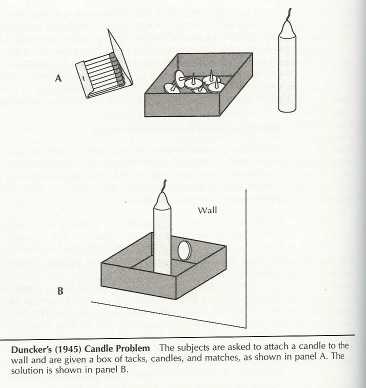Are you suffering from Functional Fixedness about your role and position?
Functional fixedness is a cognitive bias that impacts an individual’s ability to be creative.
When we discuss functional fixedness we normally associate it with how an object may be used.

Duncker’s candle problem is often used to demonstrate this bias. The problem is presented as follows: You have a candle, box of tacks, and matches. You need to attach the candle to the wall so that it can stay upright and not drip on the floor. What do you do?
Functional fixedness is why an individual is unable to use an object in more ways than it is traditionally intended – like the box that holds the tacks.
But we also have functional fixedness about ourselves and others.
And when we think about ourselves and others in that way, we tend to be less creative and less supportive of our leaders and team.
When we think of ourselves based on our title or position or role, we limit how we bring ourselves, our knowledge and creativity, to problem solving and teamwork.
And this bias can impact how we see ourselves or others as holding the solution to the problem. It may make us believe that a complex problem requires an complex solution.
Or we may ride on assumptions based on our functional fixedness – we don’t think beyond the parameters of our prior knowledge and experience. And we use those assumptions as a crutch which limits how we bring ourselves to our relationships.
Lastly, functional fixedness may lead us to specific expectations – of ourselves, our team members, and our leaders – that are making others see us in a specific light when we are hoping to shine.
#BeCourageous and see yourself as more than the function you hold. How can you bring more to your team and in support of leadership? How can you light a candle that will shine on your worth beyond your normally assumed function.


